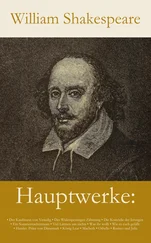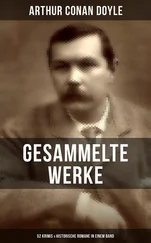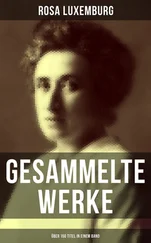Which but their children’s end naught could remove,
Is now the two hours’ traffic of our stage;
The which, if you with patient ears attend,
What here shall miss, our toil shall strive to mend.
German
Table of Contents
Table of Contents
A public place.
[Enter Sampson and Gregory armed with swords and bucklers.]
SAMPSON.
Gregory, o’ my word, we’ll not carry coals.
GREGORY.
No, for then we should be colliers.
SAMPSON.
I mean, an we be in choler we’ll draw.
GREGORY.
Ay, while you live, draw your neck out o’ the collar.
SAMPSON.
I strike quickly, being moved.
GREGORY.
But thou art not quickly moved to strike.
SAMPSON.
A dog of the house of Montague moves me.
GREGORY.
To move is to stir; and to be valiant is to stand: therefore, if thou art moved, thou runn’st away.
SAMPSON.
A dog of that house shall move me to stand:
I will take the wall of any man or maid of Montague’s.
GREGORY.
That shows thee a weak slave; for the weakest goes to the wall.
Sampson. True; and therefore women, being the weaker vessels, are ever thrust to the wall: therefore I will push Montague’s men from the wall and thrust his maids to the wall.
GREGORY.
The quarrel is between our masters and us their men.
SAMPSON.
‘Tis all one, I will show myself a tyrant:
when I have fought with the men I will be cruel with the maids,
I will cut off their heads.
GREGORY.
The heads of the maids?
SAMPSON.
Ay, the heads of the maids, or their maidenheads; take it in what sense thou wilt.
GREGORY.
They must take it in sense that feel it.
SAMPSON.
Me they shall feel while I am able to stand: and ‘tis known I am a pretty piece of flesh.
GREGORY.
‘Tis well thou art not fish; if thou hadst,
thou hadst been poor-John.—Draw thy tool;
Here comes two of the house of Montagues.
SAMPSON.
My naked weapon is out: quarrel! I will back thee.
GREGORY.
How! turn thy back and run?
SAMPSON.
Fear me not.
GREGORY.
No, marry; I fear thee!
SAMPSON.
Let us take the law of our sides; let them begin.
GREGORY.
I will frown as I pass by; and let them take it as they list.
SAMPSON.
Nay, as they dare. I will bite my thumb at them; which is disgrace to them if they bear it.
[Enter Abraham and Balthasar.]
Abraham.
Do you bite your thumb at us, sir?
SAMPSON.
I do bite my thumb, sir.
Abraham.
Do you bite your thumb at us, sir?
SAMPSON.
Is the law of our side if I say ay?
GREGORY.
No.
SAMPSON.
No, sir, I do not bite my thumb at you, sir; but I bite my thumb, sir.
GREGORY.
Do you quarrel, sir?
Abraham.
Quarrel, sir! no, sir.
SAMPSON.
But if you do, sir, am for you: I serve as good a man as you.
Abraham.
No better.
SAMPSON.
Well, sir.
GREGORY.
Say better; here comes one of my master’s kinsmen.
SAMPSON.
Yes, better, sir.
Abraham.
You lie.
SAMPSON.
Draw, if you be men.—Gregory, remember thy swashing blow.
[They fight.]
[Enter Benvolio.]
BENVOLIO.
Part, fools! put up your swords; you know not what you do.
[Beats down their swords.]
[Enter Tybalt.]
TYBALT.
What, art thou drawn among these heartless hinds?
Turn thee Benvolio, look upon thy death.
BENVOLIO.
I do but keep the peace: put up thy sword,
Or manage it to part these men with me.
TYBALT.
What, drawn, and talk of peace! I hate the word
As I hate hell, all Montagues, and thee:
Have at thee, coward!
[They fight.]
[Enter several of both Houses, who join the fray; then enter Citizens with clubs.]
1 CITIZEN.
Clubs, bills, and partisans! strike! beat them down!
Down with the Capulets! Down with the Montagues!
[Enter Capulet in his gown, and Lady Capulet.]
CAPULET.
What noise is this?—Give me my long sword, ho!
Lady CAPULET.
A crutch, a crutch!—Why call you for a sword?
CAPULET.
My sword, I say!—Old Montague is come,
And flourishes his blade in spite of me.
[Enter Montague and his Lady Montague.]
MONTAGUE.
Thou villain Capulet!— Hold me not, let me go.
Lady MONTAGUE.
Thou shalt not stir one foot to seek a foe.
[Enter Prince, with Attendants.]
PRINCE.
Rebellious subjects, enemies to peace,
Profaners of this neighbour-stained steel,—
Will they not hear?—What, ho! you men, you beasts,
That quench the fire of your pernicious rage
With purple fountains issuing from your veins,—
On pain of torture, from those bloody hands
Throw your mistemper’d weapons to the ground
And hear the sentence of your moved prince.—
Three civil brawls, bred of an airy word,
By thee, old Capulet, and Montague,
Have thrice disturb’d the quiet of our streets;
And made Verona’s ancient citizens
Cast by their grave beseeming ornaments,
To wield old partisans, in hands as old,
Canker’d with peace, to part your canker’d hate:
If ever you disturb our streets again,
Your lives shall pay the forfeit of the peace.
For this time, all the rest depart away:—
You, Capulet, shall go along with me;—
And, Montague, come you this afternoon,
To know our farther pleasure in this case,
To old Free-town, our common judgment-place.—
Once more, on pain of death, all men depart.
[Exeunt Prince and Attendants; Capulet, Lady Capulet, Tybalt, Citizens, and Servants.]
MONTAGUE.
Who set this ancient quarrel new abroach?—
Speak, nephew, were you by when it began?
BENVOLIO.
Here were the servants of your adversary
And yours, close fighting ere I did approach:
I drew to part them: in the instant came
The fiery Tybalt, with his sword prepar’d;
Which, as he breath’d defiance to my ears,
He swung about his head, and cut the winds,
Who, nothing hurt withal, hiss’d him in scorn:
While we were interchanging thrusts and blows,
Came more and more, and fought on part and part,
Till the prince came, who parted either part.
Lady MONTAGUE.
O, where is Romeo?—saw you him to-day?—
Right glad I am he was not at this fray.
BENVOLIO.
Madam, an hour before the worshipp’d sun
Peer’d forth the golden window of the east,
A troubled mind drave me to walk abroad;
Where,—underneath the grove of sycamore
That westward rooteth from the city’s side,—
So early walking did I see your son:
Towards him I made; but he was ware of me,
And stole into the covert of the wood:
I, measuring his affections by my own,—
That most are busied when they’re most alone,—
Pursu’d my humour, not pursuing his,
And gladly shunn’d who gladly fled from me.
MONTAGUE.
Many a morning hath he there been seen,
With tears augmenting the fresh morning’s dew,
Adding to clouds more clouds with his deep sighs:
But all so soon as the all-cheering sun
Should in the farthest east begin to draw
The shady curtains from Aurora’s bed,
Away from light steals home my heavy son,
And private in his chamber pens himself;
Shuts up his windows, locks fair daylight out
And makes himself an artificial night:
Black and portentous must this humour prove,
Unless good counsel may the cause remove.
Читать дальше












